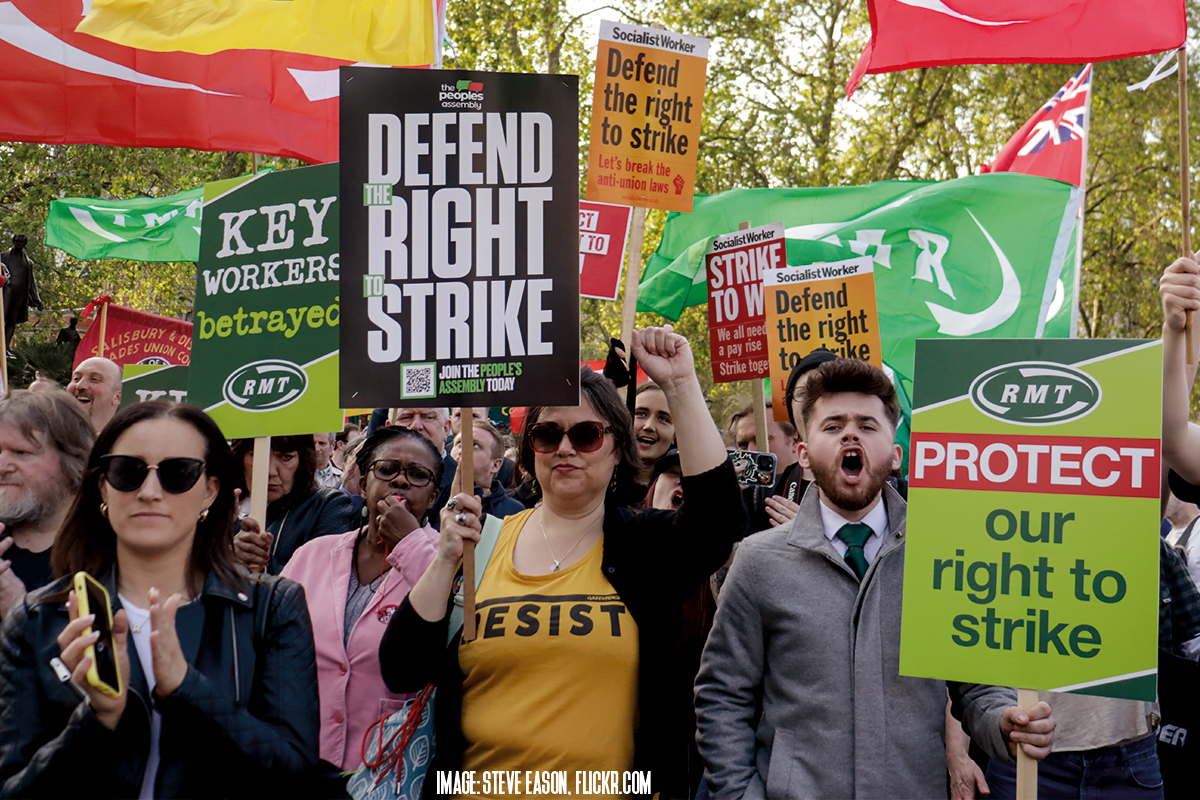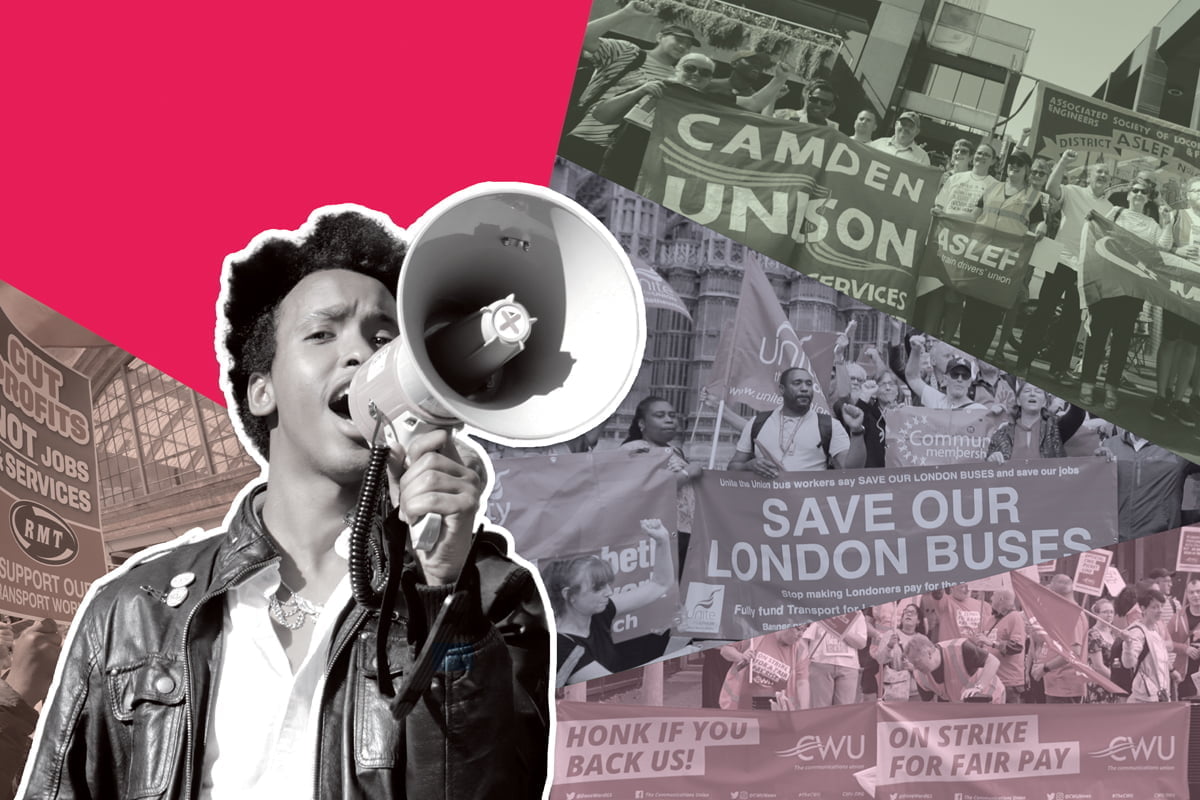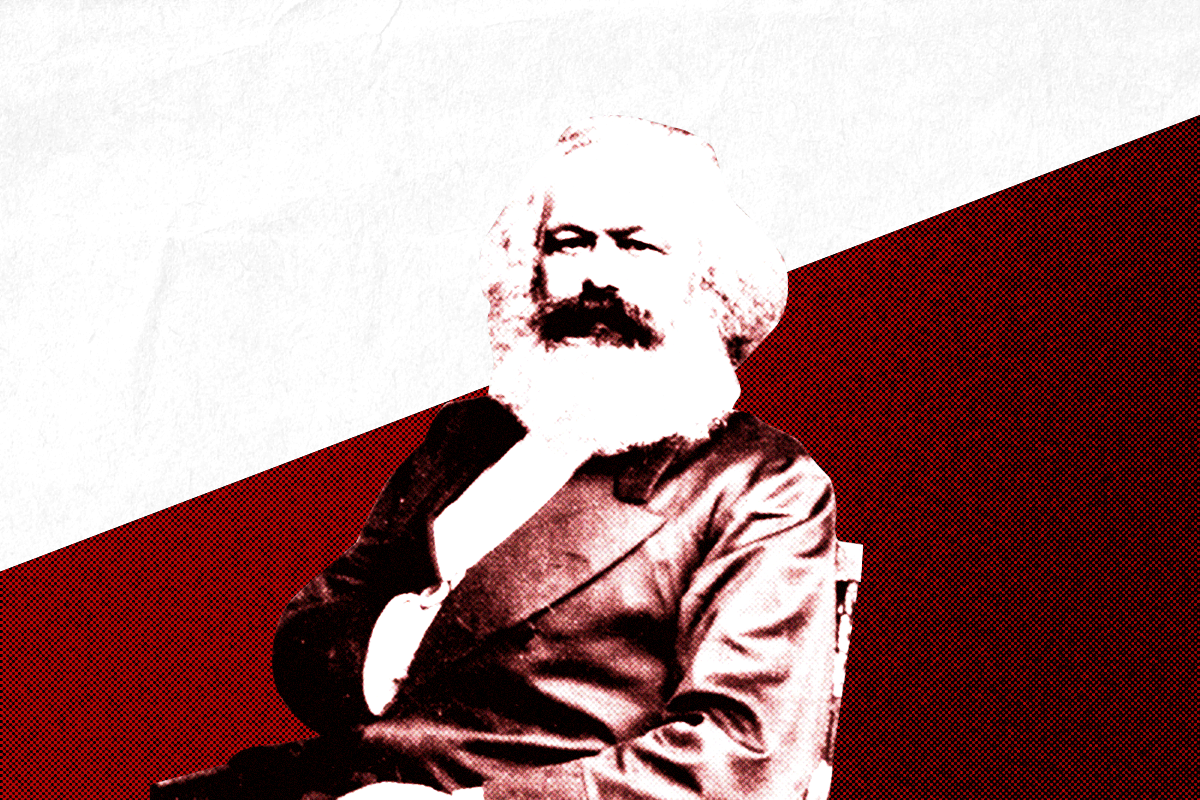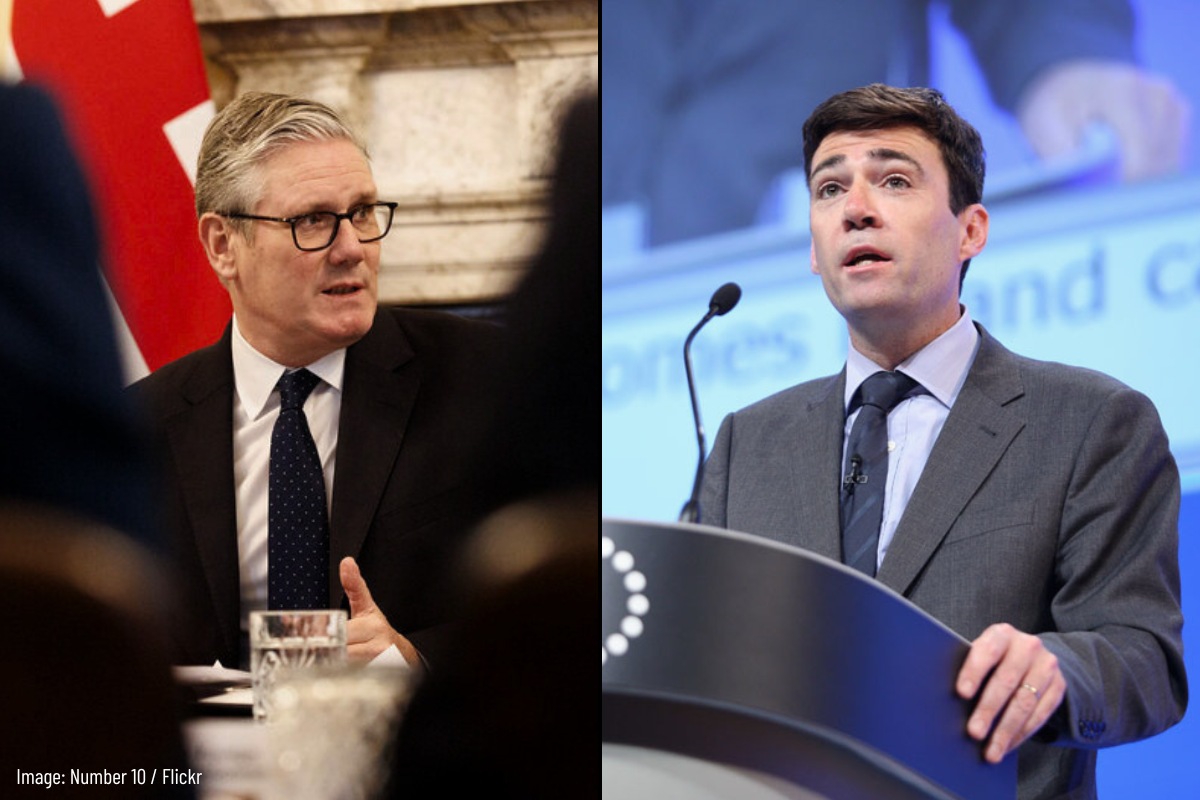Voters in three constituencies went to the polls yesterday, in a ‘Super Thursday’ of by-elections. The results were a blow for the Tories, with the party losing two seats and narrowly hanging onto the third.
The Tory Party managed to scrape through in Boris’ old stomping ground of Uxbridge and South Ruislip, following the disgraced ex-prime minister’s resignation from Parliament. But this was a Pyrrhic victory alongside heavy beatings elsewhere.
Labour representatives have attempted to put their Uxbridge loss down to controversy over Labour Mayor Sadiq Khan’s plans to expand the capital’s Ultra Low Emissions Zone. In reality, however, their failure to capture Johnson’s former seat says more about the lacklustre appeal of Starmer’s party, and offers little hope for Rishi Sunak and co.
Any Conservative cheer in Uxbridge, meanwhile, was lost amidst humiliating defeats for the party in the North Yorkshire constituency of Selby and Ainsty and the south-west seat of Somerton and Frome.
Labour and the Lib Dems, respectively, overturned huge Tory majorities in these two seats – a harbinger of potential obliteration for the Conservatives at the next general election.
In the wake of these results, it is increasingly clear to everyone that the Tory government is in meltdown.
“Reality is biting,” says one former cabinet minister. “We are on for a massive defeat. We aren’t talking margins of error in opinion polls any more. The public are tuning out now. They are psychologically exhausted by this government.”
Rishi Sunak was supposed to rescue the situation. But instead, the captain is going down with the ship.
Fires raging
Out of desperation, the Tory Prime Minister has offered to implement the recommendations of the government’s pay review bodies, with a ‘final offer’ of around 6%, in the hope of ending the strikes in the public sector.
This wage increase will not be funded from additional taxes or borrowing, however, but will come from cuts to services and spending. In other words, it will be a case of robbing Peter to pay Paul.
The PM and his chancellor, Jeremy Hunt, know that such cuts will likely be someone else’s problem, to be carried out further down the line, probably after a general election is out of the way.
For now, their priority is to quell the strikes and bring about a semblance of stability on the industrial front, using both a carrot and a stick; to extinguish one blaze so that they turn their attention to the many other fires that are raging for British capitalism and its representatives.
Whether rank-and-file union members will accept this offer is another question. Action is continuing in a number of sectors. Other disputes, however, such as that of the nurses, have stalled and ebbed. And others, including the teachers, could follow suit, with union leaders looking for a way out.
Strike wave

These struggles had the potential to develop into a mass movement of all-out coordinated action. Instead, compared to last summer, Britain’s strike wave has subsided.
Nevertheless, whatever the immediate outcome, this year of widespread industrial action represents a reawakening of the working class in Britain, after a decades-long period of retreat and setback.
Layer after layer has voted for strike action over the past twelve months. This includes workers who have never been on strike in their lives before. “The working class is back,” stated RMT leader Mick Lynch.
There may now be a temporary relative ebb in the strike wave. But this should not surprise us. The class struggle is not a continual upward curve. There are advances – but there can also be pauses and retreats.
It would be a serious mistake to think that all is over. The problems facing the working class have not gone away, but are increasing.
Explosive situation
New surges of struggle are inevitable, as the crisis of British capitalism intensifies.
Those who have settled for below-inflation pay rises will feel the pinch, as prices continue to soar and living standards decline.
And homeowners due to come off fixed mortgages in the coming months – about 1.4 million people – could see an increase in borrowing costs of around £500-1,000 a month.
This ticking time-bomb of debt is about to explode big time. This will lead to enormous turmoil and misery, and to an eruption of anger and bitterness.
No wonder the Tories are desperately trying to hold the line, hoping that their pay offer – a real-terms pay cut – will be accepted.
Then and now

On the other side, the trade union leaders have consistently been pushed into calling strikes thanks to pressures from below.
Their conservative approach, however, has failed to deliver, with coordinated industrial action being hinted at, but never organised. The TUC, the supposed general staff of the union movement, has sat on its hands.
Strikes have therefore remained isolated and confined to a few days here or there, when all-out action would have been more effective.
This is in marked contrast to the 1970s, when walkouts generally meant indefinite action.
Of course, there has been much anti-trade union legislation brought in since then to hamper militancy. There were no postal ballots then, as now, but votes in the workplace.
Even with the current restrictions, in many cases the unions have massively surpassed the legal thresholds placed in their way – achieving over 80% turnouts, with over 90% in favour of strike action. This shows the reservoirs of industrial militancy that exist, and which will inevitably grow.
While there was stronger organisation in the workplace in the past, with a powerful shop stewards’ movement, the problems facing British capitalism today are far greater by comparison.
Eventually, the 1970s movement was derailed, as the union leadership offered no perspective. Instead, they eventually accepted wage restraint under a Labour government.
Austerity and attacks
Today, the room for manoeuvre for the ruling class is far more limited. After decades of attacks, the working class has its back against the wall.
The economy is in a dire state. Capitalism can no longer afford reforms, but only counter-reforms.
The Tory government and the Bank of England are presenting a united front, demanding that workers ‘tighten their belts’ and accept lower living standards.
The working class is therefore faced with more austerity and attacks. It will be forced to resist and fight back.
Even where concessions are squeezed from the bosses, what they give with one hand, they soon grab back with the other.
These deteriorating conditions are a recipe for continued, bitter class struggle.
Bitter medicine

The ruling class understands that the Tories are finished. Instead, they are looking to Starmer to administer a dose of austerity medicine to workers.
‘Sir’ Keir Starmer is a loyal servant of the establishment, who will faithfully do their bidding.
There has never been such a grovelling Labour leader as Starmer. He is busy reassuring the ruling class by talking about “making tough choices” and sticking to “iron-clad fiscal rules”.
The Labour leader says that there will be no extra funding for public services, but only ‘reform’. This is Orwellian language for ‘counter-reforms’.
Starmer suggests that he could breathe new life into a decrepit British capitalism, by attracting “inward investment and kickstarting a spirit of enterprise”. What a wonderful message for the millions of low-paid workers struggling to make ends meet!
“Given the state of the public finances, we will not be left with the money to simply service failure,” Starmer states. “It is reform or bust.”
Again, what inspiring words for workers in the public sector, after years of brutal cuts. There is no money for wages, benefits, schools, hospitals, roads, or anything else, we are told – end of story.
Broken promises
Starmer’s U-turns and broken promises do not come without repercussions, however.
Already, divisions have opened up within the Labour Party after ‘Sir Kid Starver’ confirmed that he would not scrap the Tories’ Malthusian policy on child benefits.
This is a foretaste of the turmoil that will break loose if-and-when Labour is in power, implementing draconian austerity measures.
The right-wing Labour leaders have therefore developed a clever strategy: don’t make any promises at all!
“The only thing worse than no hope is false hope,” says Wes Streeting, the shadow health secretary.
Translated into plain English, this means that workers should have no expectations in a Labour government committed to capitalism – so don’t be disappointed when Starmer and co. fail to deliver.
This is nothing more than a kick in the teeth for millions of workers and their families, who are desperately searching for a way out of the nightmare of capitalist crisis.
Government of crisis
The ‘statesmanlike’ Starmer will lead a government of crisis from the word go. His administration will attempt to place the burden of the deepening crisis of British capitalism not onto the backs of the rich, but on to the backs of working people.
This is the logical result of trying to patch-up the crisis-ridden capitalist system.
With the UK economy lurching into a prolonged recession, and inflation remaining persistently high, the working class will not be able to tolerate the austerity that Starmer is offering. Workers have had enough.
There is colossal bitterness and anger in society. ‘More of the same’ from Labour will lead to massive social explosions.
The trade union leaders, under renewed pressure from their members, will be pushed into opposition against the Labour Party.
Sharon Graham has already warned of trouble to come. Even the right-wing unions will be forced to come out against Starmer and his austerity agenda.
The seething cauldron of discontent will burst to the surface, and a new – bigger – strike wave will emerge, this time against a ‘Labour’ government.
It should be noted that the Labour ‘lefts’ are as quiet as mice, as Starmer shifts the party further and further to the right.
Their political weakness is a reflection of their reformist outlook. Their role was exposed under Corbyn. They failed to drive the right wing out of the Labour Party when they had the chance. Instead, they attempted to appease the right wing by calling for a ‘broad church’ inside the party. Now we are reaping the consequences of their capitulation.
No doubt, as opposition grows to Starmer, they will raise their heads again. But they will have learned no lessons. They will still believe in reforming capitalism – a belief they share with the right wing – rather than overthrowing it.
Socialist revolution

There is no solution to the problems of the working class on the basis of capitalism in crisis. The system has reached its limits. Even the representatives of capitalism realise this fact.
“Capitalism as we know it has failed,” states Nick Timothy, former chief of staff to ex-PM Theresa May, writing in the Daily Telegraph.
Capitalism is in perpetual crisis. And it is the working class who are asked to pay the bill. On the basis of market anarchy, there will be no jam today, tomorrow, or ever. Instead, workers will be put on a permanent diet of gruel.
The hammer blow of events will transform the consciousness of the working class, and sharply pose the question of changing society. “Every class struggle is a political struggle,” explained Marx.
Only by overthrowing capitalism – taking over the giant monopolies, banks, and insurance companies, without compensation, under workers’ control and management – can we plan the economy in the interests of the working class. Only then can we bring about a massive rise in living standards for all.
The present crisis of capitalism – in Britain and internationally – was predicted long ago by Marx and Engels in the Communist Manifesto.
The productive forces have outgrown private ownership and the nation state, they outlined. “Society suddenly finds itself put back into a state of momentary barbarism.” Every attempt to overcome crises simply leads to greater and deeper crises.
All attempts to reform the system have failed. Only through socialist revolution can this impasse be resolved.
This requires the building of a revolutionary leadership – one that is prepared to go to the end.
That is what we are building in the International Marxist Tendency. Join us in this task!






